Parents and guardians, how do you talk to your teen about their mental health? Better question is do you talk to them about their mental health?
Below is a story about how Wuraola has been having trouble dealing with her mental health. So, she decides to seek comfort from her parents.
“Mom and Dad, I think I’m depressed. I’ve been feeling down lately”, sixteen-year-old Wuraola starts by conveying her feelings to her parents.
“What are you depressed for?”, Wuraola’s mother interjects. “When you should be pressing for your studies, you say you are feeling sad.”
Taken aback, Wuraola begins to shut down. This is not what she expected. This is not what her school counselor told her. Her parents are supposed to hear her out, not dismiss her feelings.

“We didn’t sacrifice our lives and dreams for you to be sad. What of us and all we have done for you? We have put food on your table, shelter over your head, and given you clothes to wear. Many people don’t even have what you have, so how can you be sad”, her dad chips in.
How could they do this to me? Wuraola thinks. I thought they would believe me. I am only human, just like them.
Wuraola’s mother concludes by saying, “Your father is right. If anything, you should be happy and grateful. You don’t hear us saying we are sad and depressed. So, you will not be depressed in Jesus’ name.”
Wuraola leaves for her room feeling utterly dejected, disappointed, and even more depressed. When the two people she thought she could trust let her down, Wuraola lost her last feelings of hope.
Now in a state of loneliness, anger, and brokenness, Wuraola begins to disconnect from reality. She feels disconnected from her friends and family and starts to wonder if she’s truly alone. Her mind begins to dwell on past traumas and regrets, and she finds herself constantly questioning her choices.
As the days go by, she starts to feel as if she’s living in a fog, unable to focus on anything besides her own thoughts. The world around her seems to fade away, leaving her feeling lost and confused. Despite her best efforts to stay connected, she finds herself slipping further and further away from reality, until she’s not sure if she’ll ever be able to find her way back.
We mentioned in our last blog that “mental health is defined as a person’s state of being concerning psychological and emotional well-being.”
Mental health is an important aspect of our overall wellbeing, and it is just as important for teenagers as it is for adults. Just like adults, many things impact the mental health of teenagers.
As a parent or guardian, it can be difficult to talk to your teen about their mental health, especially if you’re not sure where to start. Here are six tips on how you can talk about mental health to your teen.
6 TIPS ON TALKING TO YOUR TEEN ABOUT THEIR MENTAL HEALTH
1. Create a Safe and Supportive Environment
The first step in talking to your teen about their mental health is creating a safe and supportive environment. Set the stage for them. Find a quiet, private space where you can talk without distractions. Make sure you have enough time to have a meaningful conversation.
If your teen is more comfortable talking while doing an activity, such as taking a walk, consider that as an option. Make sure your teen knows that they can trust you and come to you with any concerns they may have. Encourage open communication and let them know that it’s okay to talk about their feelings and experiences.
From the story above, Wuraola thought she could trust her parents to help her. And she is not wrong – parents are meant to be trustworthy and open to talking about what their teenagers might be going through.
There are things that should never be said to teenagers as it can make their situation worse than it already is. Be a safe place that they can come to.
It doesn’t matter how big or small the problems that they are going through are compared to your problems. Their feelings are just as valid as yours.
Temiloluwa Oyelami
2. Start the Conversation
I have always found it hard and scary to ask or seek for help, whether it be emotionally or physically. And during my teenage years, I had always wished that someone else started the conversation, instead of me.

Initiating a conversation about mental health with your teen can be daunting, but it’s important to start the conversation. You could begin by asking your teen how they’re feeling or if there’s anything on their mind. Let them know that you’re there to listen and support them. You could ask open-ended questions like, “How have you been feeling lately?” or “Is there anything you want to talk about?”.
More so, there are teenagers that will not initiate conversation unless you engage with them first. Engaging with them lets them know you are paying attention. Even if they don’t open up immediately, at one point they will.
3. Be Open and Non-Judgmental
When talking to your teen about mental health, it’s important to be open and non-judgmental. Listen to what they have to say without interrupting or criticizing them. Don’t make it about you, because it’s not.
Avoid using negative language or making assumptions about their behavior. Try to put yourself in their shoes, understand their perspective, and validated their feelings. Offer positive affirmations, such as “I’m sorry you’re going through this,” or “It’s understandable that you feel that way.”
It is easy for teens to withdraw when there is even an ounce of judgment from their parent or an adult they trust. Even if you don’t say anything, your teen can still pick up on judgment from your facial expressions and body language.
Teenagers are NOT weak when they come to you for help. They are, in fact, strong and brave. Approve of that!
Temiloluwa Oyelami
4. Educate Yourself
Before you talk to your teen about their mental health, educate yourself on the topic. Learn about the different mental health conditions that affect teenagers and their symptoms. This will help you understand your teen’s experiences and how to best support them.
Of course, it’s ok if you don’t know everything about mental health and talking about mental health. However, it’s not ok if you choose to not educate and learn on how you can help, not only your teen, but also yourself. Therefore, you could read books or articles, watch documentaries, or talk to a mental health professional.
5. Encourage Professional Help
If you have noticed that your teen is struggling with their mental health, it is important to take action right away. While it can be difficult to approach the subject, it is important to encourage your teen to seek professional help.
One way to start the conversation is by talking to them about the benefits of therapy and letting them know that it is okay to ask for help. You could explain to them that therapy can help them develop new coping mechanisms and strategies to deal with their emotions, and that it can also provide them with a safe and non-judgmental space to talk about their struggles.
:max_bytes(150000):strip_icc()/Primary-Image-best-online-therapy-for-teens-of-2022-7069024-29c4bb5f3dc94cdb90de2cac7c0477d4.jpg)
To help your teen find a therapist or counselor, you could offer to research some options together. You could also encourage them to talk to their school counselor or pediatrician for a referral. Once they have found a therapist, you could offer to accompany them to their appointments if they would like. This can be especially helpful if your teen is feeling anxious or nervous about the process.
Additionally, you can share self-care strategies, such as exercise, meditation, or journaling, that can help improve their mental health.
Remember, seeking help is a sign of strength and resilience, and it can make all the difference in your teen’s mental health and overall well-being.
6. Check in Regularly
After talking to your teen about their mental health, make sure to check in regularly. Ask them how they’re feeling and if there’s anything they need help with. Let them know that you’re always there to support them.
In this case, being supportive goes a long way. Teenagers might not show their appreciation immediately, but they feel it when you support and believe them.
TAKEAWAYS
Talking to your teen about their mental health can be challenging, but it’s an important conversation to have.
By creating a safe and supportive environment, being open and non-judgmental, educating yourself, encouraging professional help, and checking in regularly, you can help your teen prioritize and manage their mental health and wellbeing, as well as improve their overall quality of life.
Remember, it’s never too early to start talking about mental health, and it’s never too late to seek help.
Starting young will be beneficial to teens as it helps them understand how to care for themselves and know when and how to seek help.
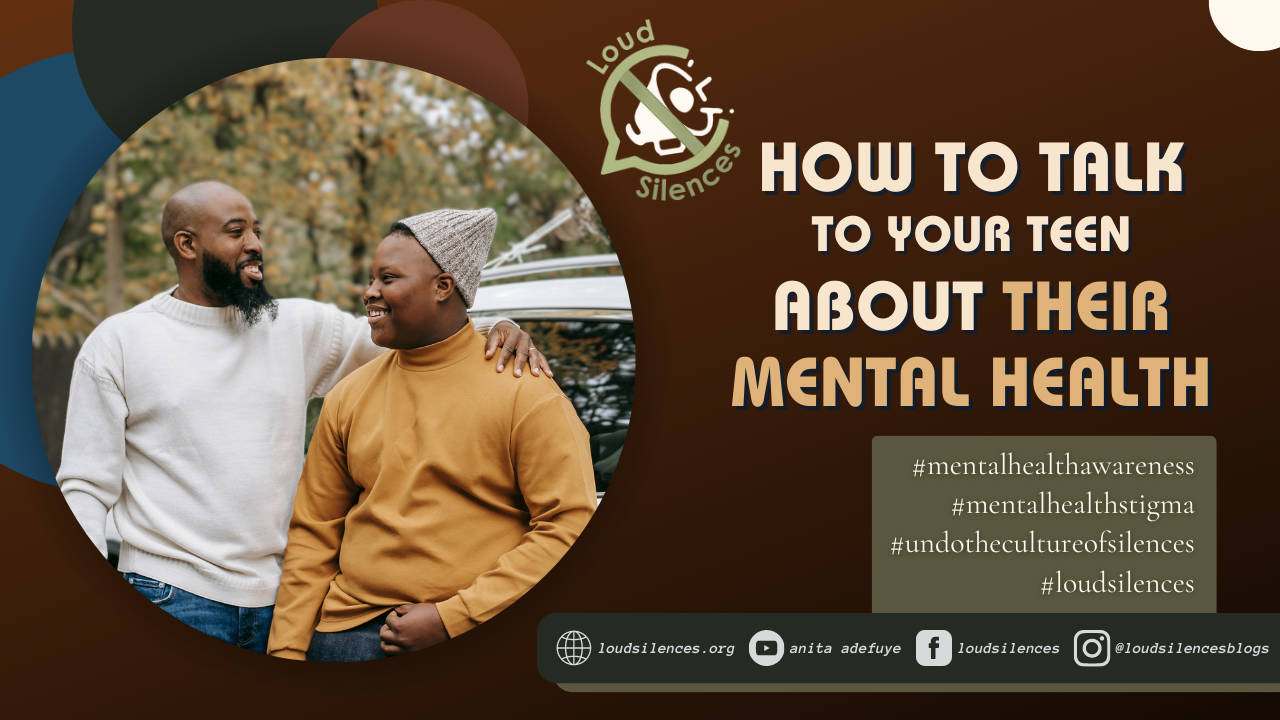
Anita Adefuye, the author, shares her story of sexual abuse, low mental health, suicide, and how she overcame them all to become who is she today, the founder of LoudSilences and more. Her book, Reve-Healed – A true story of pain, healing, and hope, is available for purchase. So, be sure to get yourself a copy today!
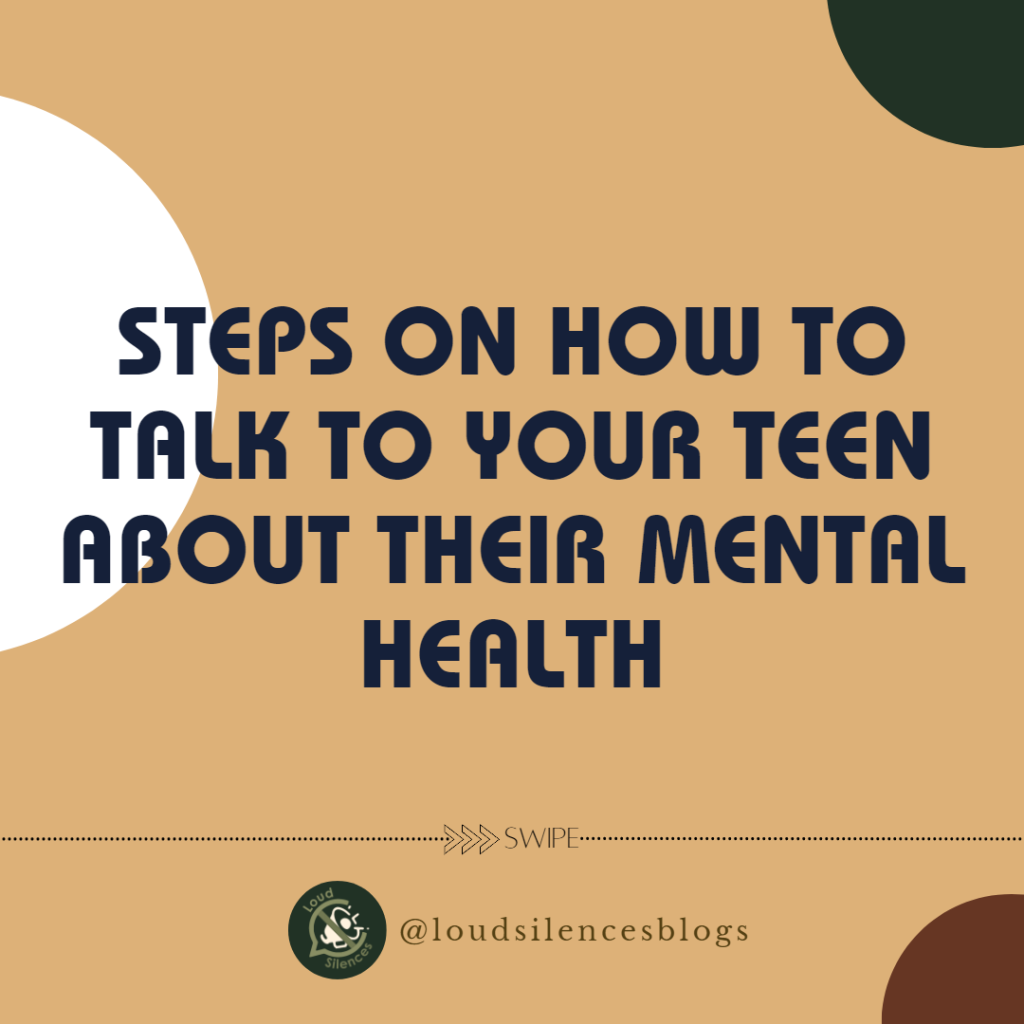

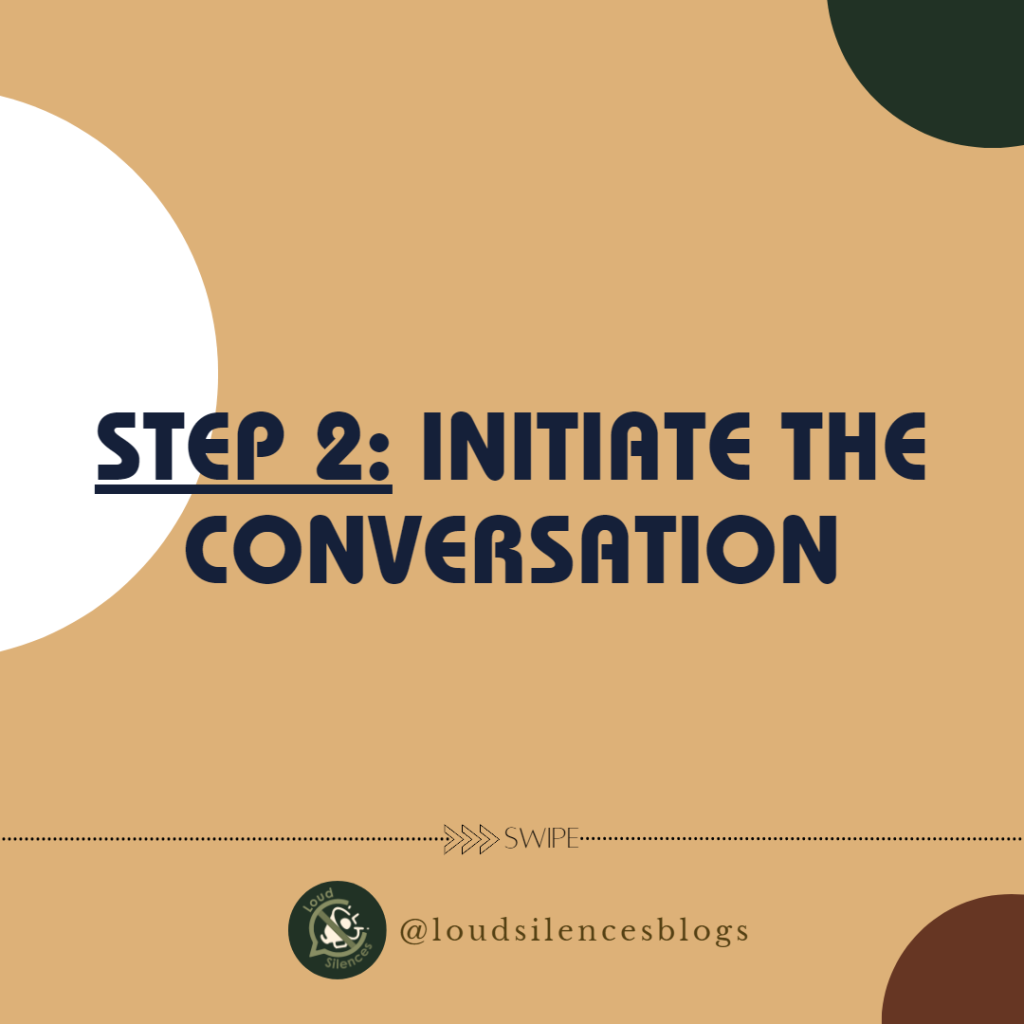
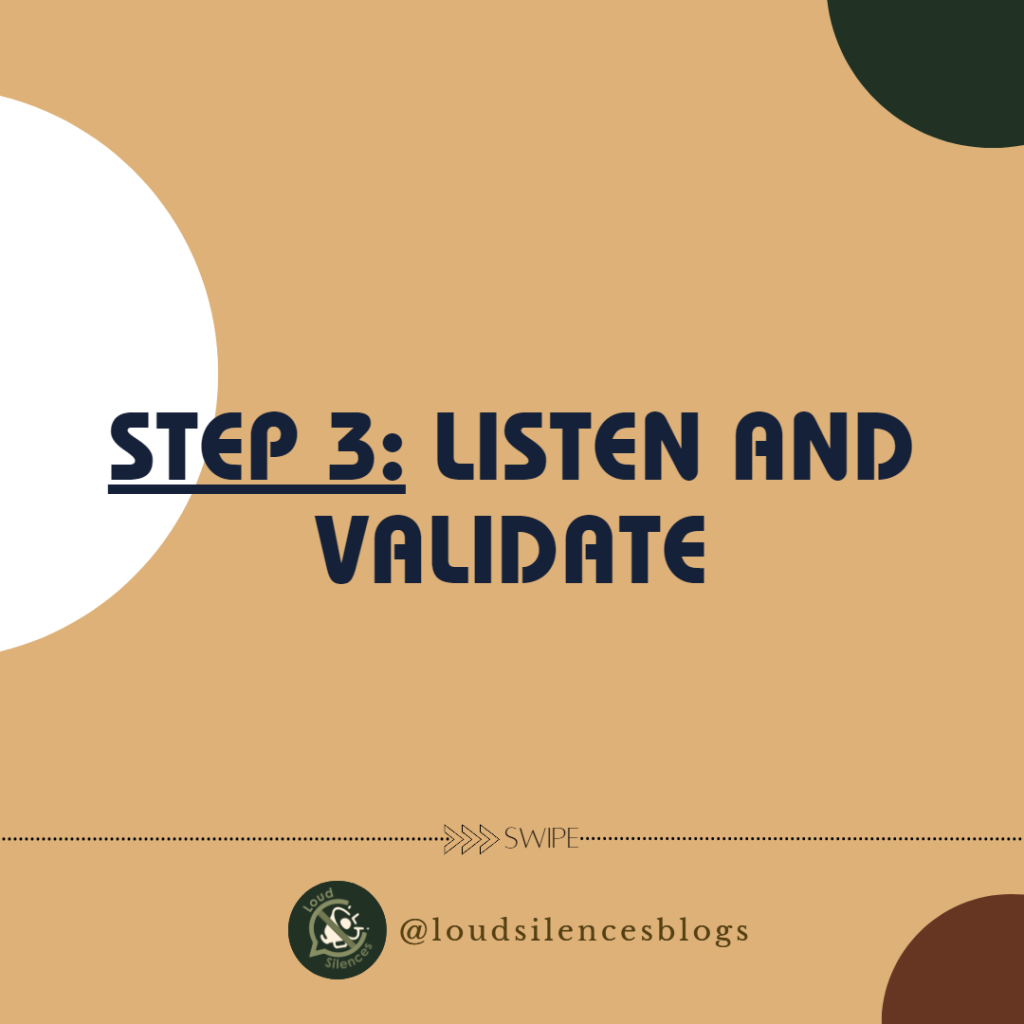

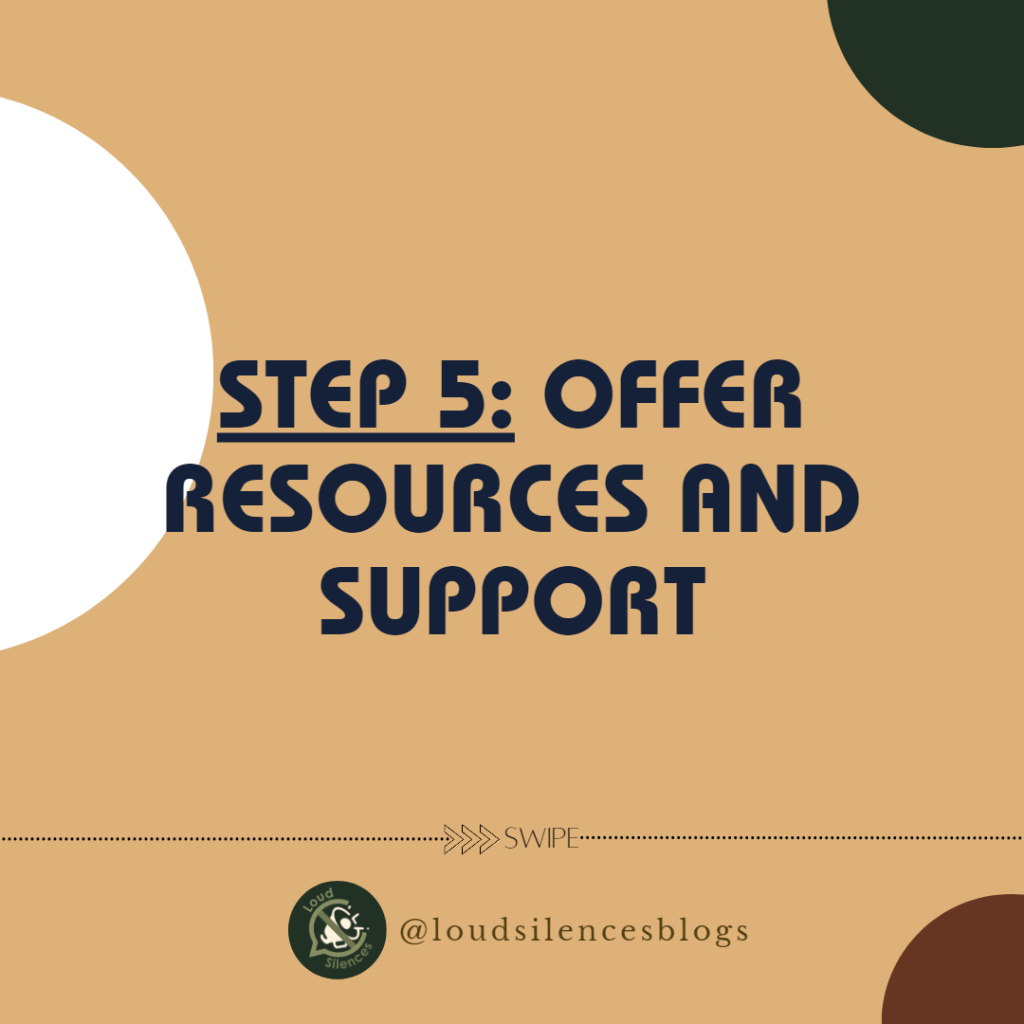
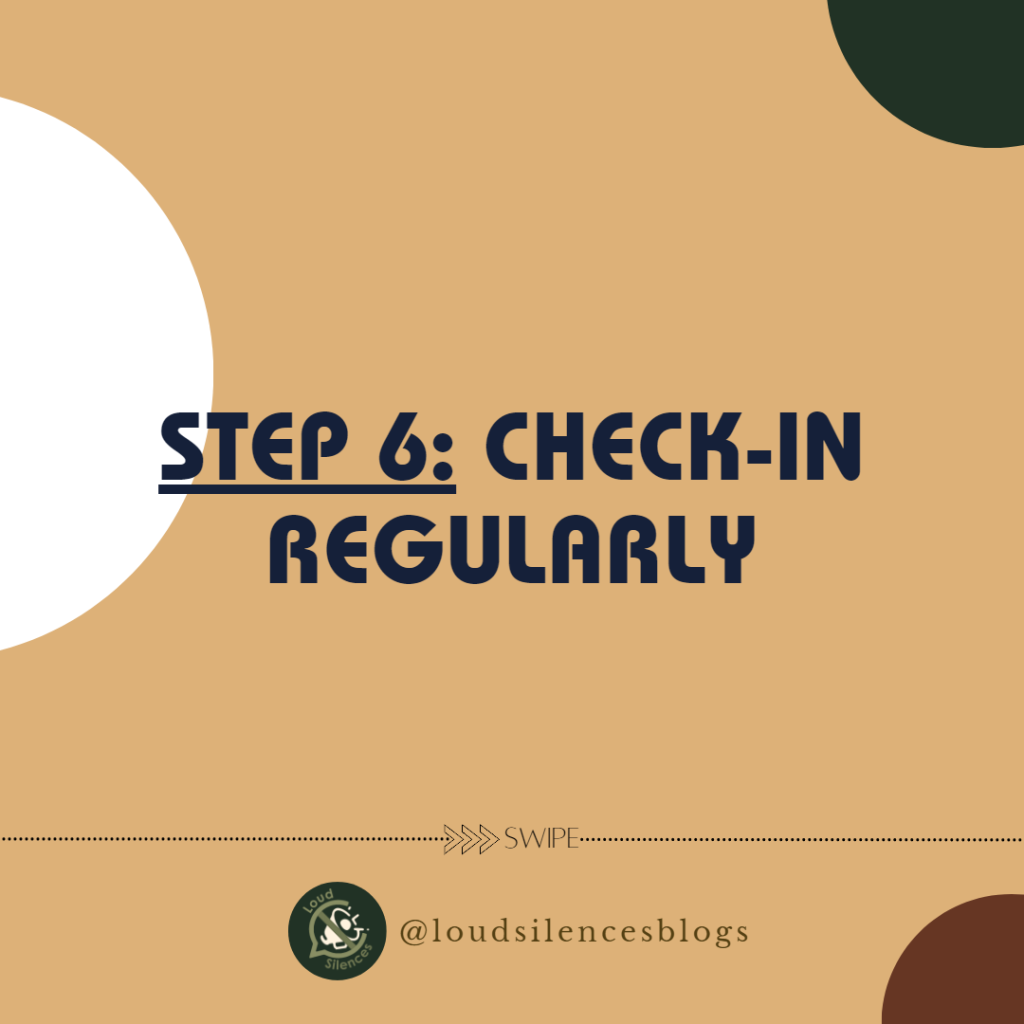
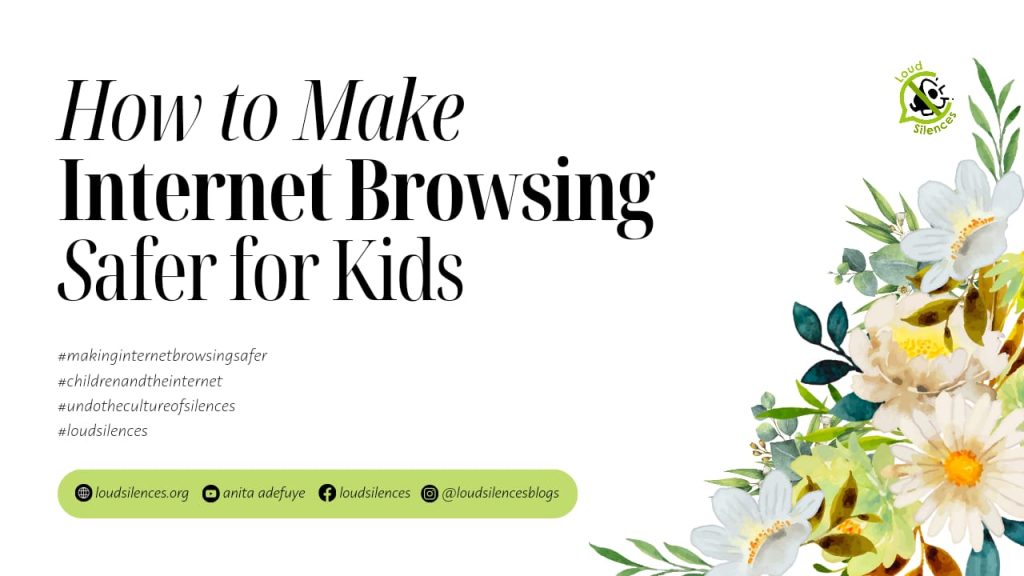





Leave a Reply